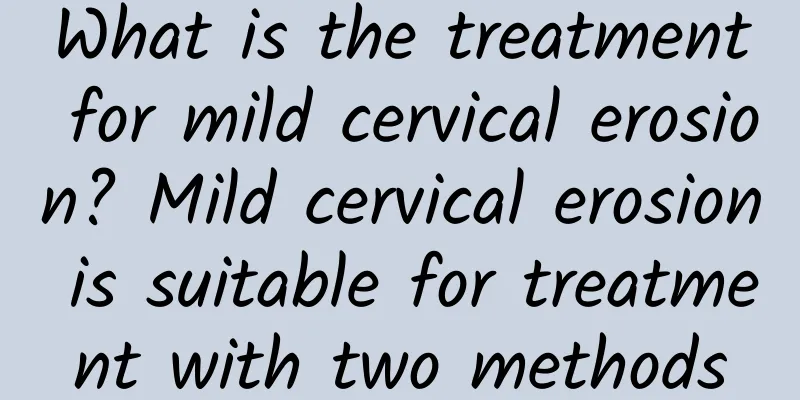Study: COVID-19 infection affects bone health! 3 ways to test and understand the quality of action

|
The cumulative number of people infected with the virus in Taiwan has exceeded 6 million, with tens of thousands of new confirmed cases reported daily. In addition to sequelae such as coughing and brain fog, Dr. Huang Zhaoshan, chairman of the Osteoporosis Association of the Republic of China (TOA), emphasized that an international study pointed out that infection with Covid-19 will promote the proliferation of inflammatory cells and affect bone health. This means that 1.94 million mature-age confirmed people in Taiwan are facing a mobility crisis! An international study pointed out that infection with Covid-19 will promote the proliferation of inflammatory cells and affect bone health. This means that 1.94 million mature-age people in Taiwan who have been diagnosed with the disease are facing a mobility crisis! During the epidemic prevention period, insufficient exercise will accelerate muscle loss and cause problems with mobility. According to the latest physician survey conducted by the Osteoporosis Association of the Republic of China (TOA), nearly 50% of people in Taiwan have mobility problems after the epidemic. Mobility is closely linked to bones, joints, and physical strength, and requires sufficient muscle mass to support the body. Low muscle mass is one of the risk factors for mobility disorders in the elderly, and is also significantly correlated with mortality. Reminder: Two major threats in the post-epidemic era are revealed, and people over 50 years old who are diagnosed may face a crisis of mobility Threat 1: Covid-19 infection affects bone health, 1.94 million mature-age confirmed cases may be affected An international guideline for the treatment of osteoporosis during the epidemic mentioned that infection with Covid-19 will cause the proliferation of inflammatory cells and affect bone health. According to the Taiwan epidemic report statistics of the Centers for Disease Control and Prevention of the Ministry of Health and Welfare, as of October 12, 2022, a total of 1.94 million people over the age of 50 in Taiwan have been infected with the virus. The sequelae of the new crown are not only coughing and brain fog, but the infection may also affect bone health! The study also calls for older people who have recovered from Covid-19 to undergo bone density tests. If they are found to be in a high-risk group, they should take appropriate measures to protect their bones as soon as possible. Threat 2: Nearly 40% of older adults have reduced their exercise, which directly impacts muscle mass and bone health In response to the escalating local epidemic in May 2021, Taiwan announced for the first time that it had entered the third level of epidemic alert. In order to reduce the risk of infection, people have reduced the frequency of daily activities such as going out for shopping and exercise. According to the Taiwan Trend Research survey on new life for epidemic prevention under the third alert level, among people over the age of 50, as many as 40.7% reduced their exercise, and 4.2% stopped exercising completely. Dr. Huang Zhaoshan reminds us that if walking activities are reduced for 14 days, muscles will obviously shrink by 1-4%. If the frequency of exercise is not increased, muscle mass may continue to be lost. In addition, foreign studies have also pointed out that subjects with reduced muscle mass have three times more abnormal bone health than those with normal muscle mass. The decrease in activity caused by epidemic prevention may directly impact the muscle mass of older people and increase the risk of bone health. Survey: Nearly 50% of Taiwanese aged 50 and above face mobility crisis Not only does research point out the threat to mobility in the post-epidemic era, clinical outpatient cases also show that people over 50 face mobility problems. Dr. Huang Zhaoshan pointed out that a 60-year-old woman was found to have low bone density and vitamin D deficiency during a physical examination a year ago. Later, due to the outbreak of the epidemic, she was worried about being infected, so she suspended follow-up visits and reduced the frequency of going out to buy groceries and taking walks in the park. One day the following year, he accidentally slipped in the bathroom and was sent to the hospital for treatment, where it was discovered that his bone health was deteriorating. In fact, such cases are common after the epidemic. The Osteoporosis Association of the Republic of China (TOA) conducted a questionnaire survey among clinical physicians to understand whether people over 50 years old in Taiwan face mobility issues after the epidemic. The survey pointed out that before the epidemic, 38% of the people suffered from mobility problems, and after the epidemic, the number increased to nearly 50% of the people with symptoms such as reduced bone support or joint function. In addition, 35% of the people have experienced worsening mobility problems after the epidemic. Dr. Huang Zhaoshan further explained that some people are afraid that going to and from the hospital will increase the risk of infection, so they interrupt their treatment and neglect to supplement vitamin D, calcium, and take in enough protein. Since bones are silent organs, many people have fallen into a mobility crisis without knowing it. Three ways to check your mobility immediately (Photo courtesy of the Osteoporosis Society of the Republic of China) 3 ways to test your ability to act In order to help people check their own mobility, the Osteoporosis Association of the Republic of China (TOA) has launched three measures to test mobility, so that people can understand their mobility simply by following them at home: The first move: Half squat against the wall and see if you can straighten your back. The second move: Stand without bending your knees, and see if your hands can easily touch the ground. The third move: Stand on one leg with both hands raised horizontally. Can you maintain this without shaking for 10 seconds? Dr. Huang Zhaoshan called for maintaining the good habit of regular exercise and balanced nutrition, regardless of whether the three mobility test methods can be done easily or feel strenuous. Supplementing with high-quality protein such as whey protein after exercise can further enhance the effect of exercise, effectively help develop bones, joints, and physical strength, and maintain good mobility. |
<<: Foods you can and cannot eat to lose weight - a reference for people who want to lose weight
Recommend
What is uterine fibroids? How to treat uterine fibroids
Uterine fibroids have become a very common uterin...
How to relieve severe dysmenorrhea? Try these 4 tips
Dysmenorrhea is a phenomenon that many people fin...
Pregnant women beware: What are the early symptoms of ectopic pregnancy?
Ectopic pregnancy is a very dangerous gynecologic...
Several methods of self-identification of uterine fibroids Traditional Chinese medicine treatment remedies for uterine fibroids
Several ways to self-identify uterine fibroids? W...
What is the best treatment for vulvar itching?
Vulvar itching is often caused by a fungal infect...
How to treat chronic pelvic inflammatory disease?
Chronic pelvic inflammatory disease is a type of ...
5 kinds of food to help you lose weight after giving birth
Having a baby is a major event in a woman's l...
Detailed introduction to common preventive measures for cervical erosion
Cervical erosion is a common gynecological diseas...
How to care for patients with cervical warts
There are many diseases in life, big and small, i...
The main factors that cause dysmenorrhea
I believe that many female friends should be fami...
Patients with vulvar leukoplakia should undergo timely examination
The incidence of vulvar leukoplakia in my country...
Eat the right food to lose weight, promote metabolism and break down fat! 7 great weight loss foods to help you lose weight
You need to eat the right foods to lose weight. T...
How to treat dysmenorrhea in the back of the thigh most effectively? What should I do if I have severe pain in the back of the thigh?
How to treat posterior thigh dysmenorrhea most ef...
How to treat premature ovarian failure
The methods for treating premature ovarian failur...
Causes of ectopic pregnancy
Causes of ectopic pregnancy: Ectopic pregnancy us...









